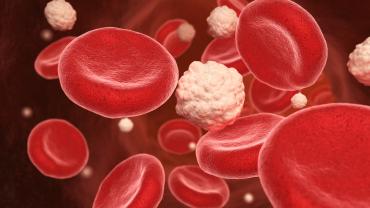
Abnormalities in blood sugar regulation have been linked to changes in antioxidative status and the inflammatory response. Vitamin E is a powerful antioxidant that helps support cellular function and normal inflammation. It has several forms that have different actions within the body. On a molecular level, the structural differences between tocopherols and tocotrienols may contribute to their different actions. For instance, the bond types and composition of tocotrienol side chains help support a more even distribution and fluidity with the cell’s phospholipid bilayer.
While tocopherols are perhaps the best-known form of vitamin E, research indicates that tocotrienols have a relatively high bioavailability and may possess additional qualities in support of cellular health, cardiovascular function, and lipid metabolism. Emerging evidence also suggests that tocotrienols may help maintain healthy blood sugar homeostasis.
A recently published systematic review and meta-analysis by Phang and colleagues explored the potential connection between tocotrienol supplementation and glucose metabolism in individuals with type 2 diabetes mellitus (T2DM). The study included data from 10 randomized controlled trials that administered tocotrienol-rich fraction as the primary intervention. A tocotrienol-rich fraction consists of a 70% mixture of tocotrienol isomers. Sample sizes ranged from 43 to 300 participants and study durations were between 8 weeks and 18 months. Administered amounts ranged from 200 to 420 total tocotrienols. Parameters related to blood pressure, inflammation (high-sensitivity C-reactive protein, or hs-CRP), and blood sugar homeostasis (hemoglobin A1c, or HbA1c) were included in the meta-analysis.
Overall conclusions of the meta-analysis included significant decreases in HbA1c. Upon subgroup analysis, significant reductions in HbA1c were indicated when the duration of T2DM was less than 10 years, when the intervention lasted less than 6 months, and with a baseline HbA1c lower than 8.0%. In individuals with an HbA1c baseline higher than 8.0%, greater reductions in HbA1c were observed when compared with those with a lower than 8.0% baseline upon tocotrienol supplementation. While only non-significant decreases in systolic blood pressure and hs-CRP were reported, these results indicate that future clinical studies assessing tocotrienols’ effect on these parameters are warranted. Drawbacks to this study include relatively small sample sizes, lack of uniformity in biometric parameters, and varying study durations.
While more research is needed, tocotrienols may help support blood glucose metabolism and cardiovascular health, in addition to their supportive role for antioxidative stress and the inflammatory response. Tocotrienols can be found in rice bran oil, annatto, and certain grains including oats, barley, and rye.
By Dr. C. Ambrose, ND, MAT